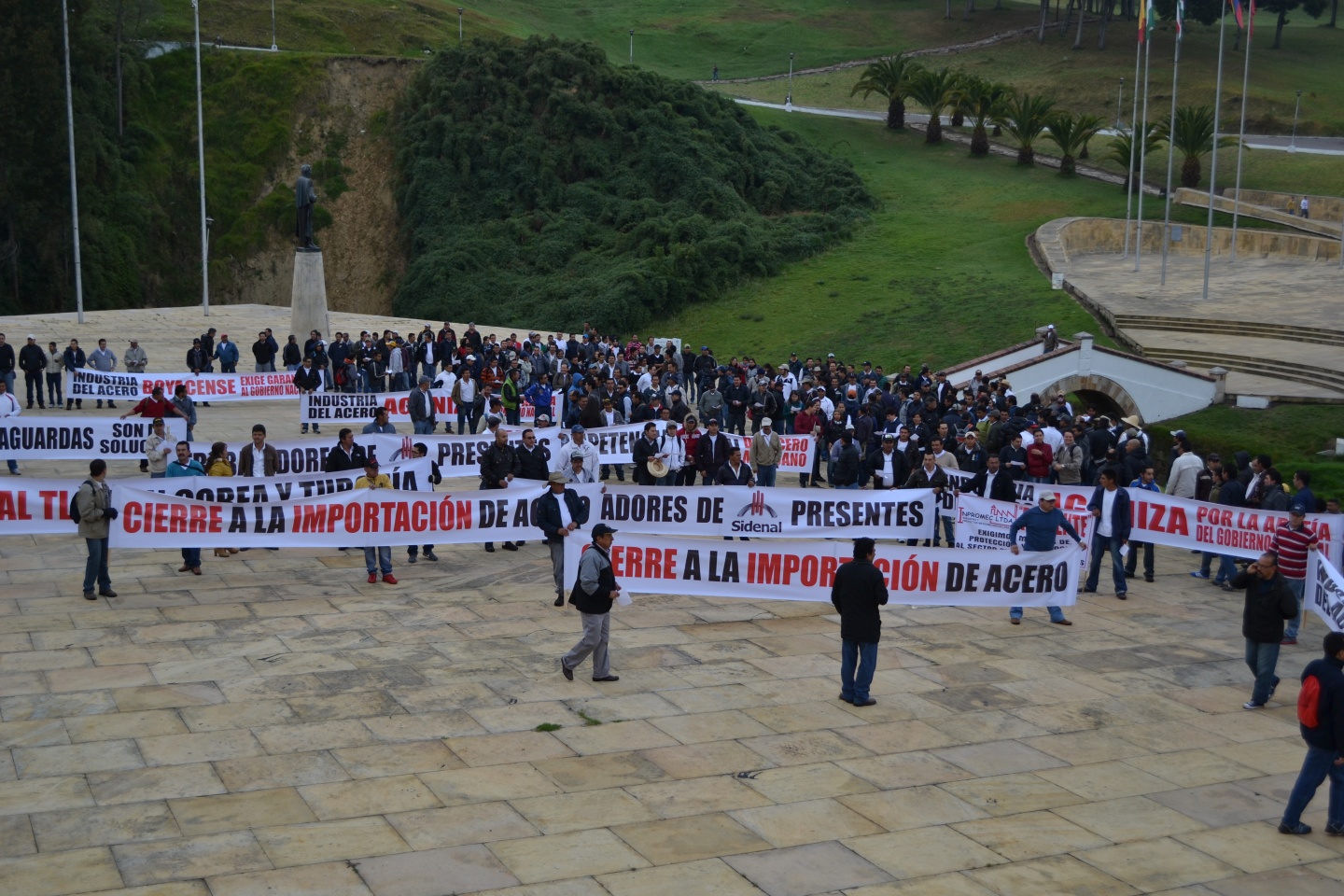21 March, 2013Around 500 workers employed by Acerías Paz del Río, Gerdau Diaco and Sidenal, demonstrated to demand government measures to defend the national steel industry and protect jobs.
On 11 March, workers blocked the bridge at Boyacá to demand that the government slows down steel imports and stops signing free trade agreements that harm the steel sector.
It is not only the workers who are protesting. Steel industry companies are also calling for measures to stop unfair competition from foreign companies.
According to the metalworking chamber of the Colombian employers’ association (ANDI), smuggling is responsible for reducing the country’s steel production by 20%. It also warned about the poor quality of the steel entering the country illegally, which does not comply with seismic resistance standards.
They all want the government to activate free trade agreement safeguard clauses to protect national industry, increase customs duties on steel imports from Mexico (currently 0%) and exclude steel from the free trade treaties with South Korea and Turkey, who are among the world’s leading producers. These were the demands put to the vice-president of the republic, Argelino Garzón, at a meeting on 15 March, by union and steel company representatives.
Mauricio Castro, president of the SINTRAMETAL union, which is a member of ULTRAMMICOL, affiliated to IndustriALL, said that the meeting discussed “the problems of the Colombian steel sector; the need for a new customs regime with countries like Turkey, Trinidad and Tobago and China; and the need to revise the free trade agreement with Mexico. Imports from Mexico are causing chaos in the sector because of the quantity of steel involved and its exemption from customs duties. More seriously, it is cheaper than Colombian steel”.
The figures show that 58% of steel consumed in Colombia is imported. Imports grew by 46% between January and September. National steel production fell by 24% in the year to October 2012. The situation is having a major impact on the sector’s more than 2,500 workers, causing an increase in unemployment and poverty.


